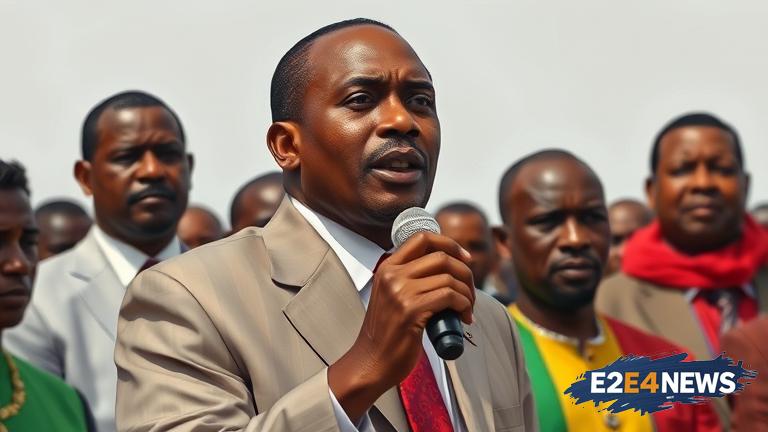In a shocking move, Cameroon’s Constitutional Council has barred the main opposition candidate, Cabral Libii, from participating in the country’s upcoming presidential election. The decision has sent shockwaves throughout the nation, with many questioning the legitimacy of the electoral process. The council cited irregularities in Libii’s candidacy, including allegations of forged documents and inconsistencies in his birth certificate. However, Libii’s supporters argue that the decision is a blatant attempt to suppress opposition and ensure the incumbent president’s re-election. The move has sparked widespread outrage, with many taking to social media to express their discontent. The opposition party has vowed to challenge the decision, citing irregularities in the council’s ruling. The presidential election is scheduled to take place in the coming months, and the disqualification of Libii has thrown the race into chaos. The incumbent president, Paul Biya, has been in power for over three decades and is seeking re-election. Biya’s regime has been criticized for its human rights record, corruption, and authoritarian tendencies. The opposition has long accused Biya of manipulating the electoral process to maintain his grip on power. The disqualification of Libii has raised concerns about the country’s democratic credentials and the ability of the opposition to participate in the electoral process. The international community has called for transparency and fairness in the electoral process, but it remains to be seen whether these calls will be heeded. The situation in Cameroon is complex, with the country facing numerous challenges, including a separatist movement in the Anglophone region and a struggling economy. The presidential election is seen as a critical moment in the country’s history, with many hoping for a peaceful and democratic transfer of power. However, the disqualification of Libii has raised fears of unrest and instability. The opposition has called for calm, but tensions are running high. The country’s electoral commission has announced that it will proceed with the election as scheduled, despite the controversy surrounding Libii’s disqualification. The international community is watching the situation closely, with many calling for a free and fair election. The European Union has expressed concerns about the electoral process, citing irregularities and a lack of transparency. The United States has also weighed in, calling for the Cameroonian government to ensure a fair and democratic election. The African Union has urged all parties to respect the electoral process and to refrain from violence. As the situation continues to unfold, it remains to be seen whether the election will be free and fair, or whether the incumbent president will maintain his grip on power. The people of Cameroon are eagerly awaiting the outcome, hoping for a peaceful and democratic resolution to the crisis. The country’s future hangs in the balance, and the international community is watching with bated breath. The disqualification of Libii has sparked a national debate about the country’s democratic process and the role of the opposition in the electoral process. The opposition has vowed to continue fighting for democracy and transparency, despite the setbacks. The situation in Cameroon is a reminder of the challenges faced by many African countries in their transition to democracy. The country’s experience serves as a cautionary tale about the importance of ensuring a free and fair electoral process. As the election approaches, the people of Cameroon are holding their breath, hoping for a peaceful and democratic outcome.
